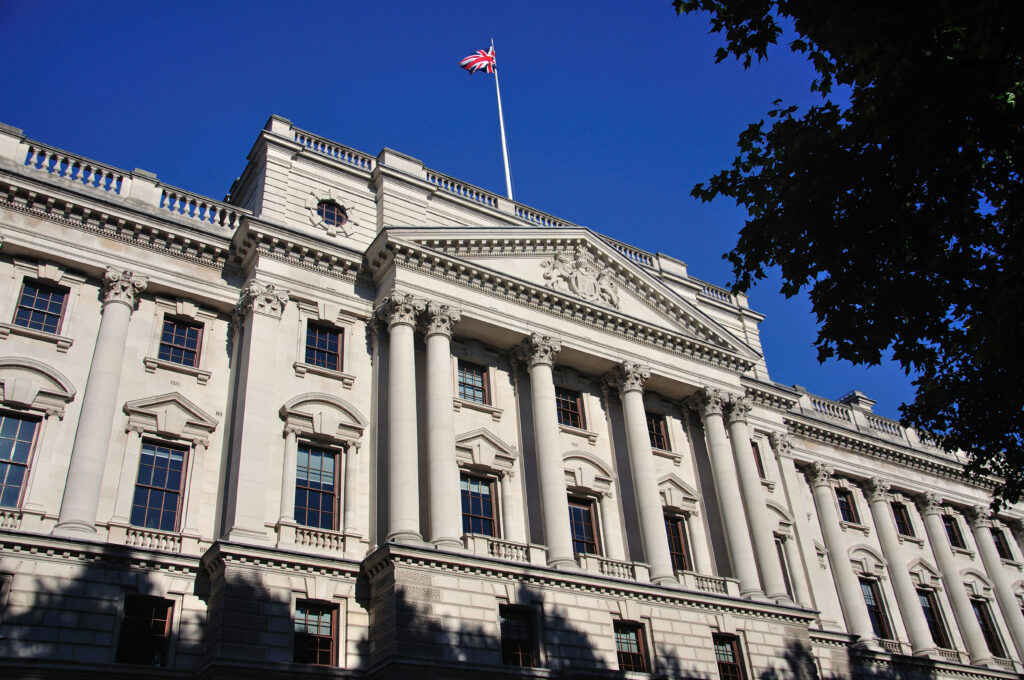- Analysis from pro-growth group High Streets UK reveals that over 600 trading units on flagship high streets will be put at risk by rates rises, with over 200 facing permanent closure.
- Despite Government claims the proposals will target online giants, properties subject to new higher ‘super tax’ multiplier are 5.1x more likely to be on flagship high streets than anywhere else.
- The majority of those affected (64%) said they will need to pass on costs to consumers – estimated to be a roughly 3% increase in prices.
- Additional analysis suggests that up to 5,500 jobs on flagship high streets will also be at risk, should the proposed business rates reforms go through.
- The research found that affected businesses in these locations will face an increase of up to £69 million in business rates liabilities, as a result of the higher ‘super tax’ multiplier.
London, 17 March 2025 – Retail, leisure, and hospitality businesses across the nation’s flagship high streets from Birmingham and Bristol to Liverpool and London are facing rising costs that will impact jobs, growth, and investment across the country, according to fresh analysis from pro-growth group High Streets UK.
The major new survey of 115 business operating on flagship high streets has found that rising operational costs – including set increases in employers’ national insurance contributions (92%), a planned increase in the national minimum wage (79%), and business rates reforms which are currently being consulted on (81%) – is the most pressing issue they face.
The Government confirmed changes to employers’ national insurance and the national minimum wage in last year’s Autumn Statement, but the proposed creation of a new ‘super tax’ business rates multiplier is currently undergoing a consultation period. Properties set to be affected by the new ‘super tax’ multiplier are those with a rateable value of over £500,000.
The survey revealed that the majority of businesses set to be impacted by the new higher multiplier (69%) will seek to manage costs by reviewing staffing requirements – threatening up to 5,500 jobs in these locations. 64% of those impacted businesses will consider passing on the additional costs to consumers, with analysis suggesting that prices would need to rise by around 3% to offset the increased tax burden.
A third of affected businesses are considering reviewing their investment strategies in the UK (34%) or closing certain locations (31%) as a result. This could put up to 600 trading units at risk, with over 200 potentially facing permanent closure.
Despite Government claims the proposals will target online giants, properties subject to new higher ‘super tax’ multiplier are 5.1x more likely to be in flagship high street locations like Birmingham, Liverpool or London than anywhere else. Often leased or owned by large retail, hospitality or leisure operators, or professional services firms, these businesses could be subject to a collective increase in business rates liabilities of up to £69 million.
Dee Corsi, Chair of High Streets UK and Chief Executive of Founding Member, New West End Company, commented:“We welcome the long overdue review of the current business rates system. However, current proposals place too great a burden on the UK’s flagship high streets, undercutting the Government’s national growth ambitions.
“Our survey of businesses up and down the country clearly shows that the plans would be a disaster for jobs, investment, growth and ultimately, lead to higher prices for consumers. We urge the Government to take on board our concerns and reconsider their proposed reforms to protect flagship high streets, attract inward investment, support growth, and create a fairer system for all.”
Earlier this month, High Streets UK met in Liverpool for its first quarterly policy forum on business rates. Key policy recommendations include conducting a full impact assessment of proposed multiplier increases; freezing any hike in the higher multiplier until 2027/28 to provide greater certainty; and ring-fencing rates for investment in the local flagship high street area, so those who pay the highest rates see a positive impact on services on their doorstep.
ENDS
NOTES TO EDITOR
About the survey
A survey of 115 retail, leisure, and hospitality businesses that represent over 4,000 trading units on high streets up and down the country, including Aberdeen, Birmingham, Bristol, Cardiff, Edinburgh, Liverpool, Leeds, London and Newcastle was carried out between 11 February 2025 and 28 February 2025.
For more information, please contact: nwec@headlandconsultancy.com
High Streets UK Business Rates Policy Recommendations to the Government:
- Produce a comprehensive, long-term impact assessment of its proposed multiplier increases on bricks-and-mortar locations, including how this could affect job growth and future investment.
- This assessment should also consider the addition of commercial properties which aren’t currently captured by the existing rates system e.g. large student accommodation developments.
- Fix the multipliers immediately, rather than increasing them annually in line with CPI. This would provide greater certainty to businesses between revaluations.
- This would require the Government to remove the principle of revenue neutrality, which does not apply to other tax bases.
- Freeze any increase in the higher multiplier until 2027/2028, after the 2026 revaluation, to allow businesses ample time to prepare for increases in rates liability.
- Increase the higher rate multiplier threshold at the point of the 2026 revaluation, in order to avoid fiscal drag.
- Ensure that a portion of locally collected rates is retained and ring-fenced for investment in the corresponding flagship high street area, so those who pay the highest rates see a positive impact on services on their doorstep.
- Extend Empty Property Relief from 3 months to 6 months, followed by a 50% discount thereafter. This would bring the relief more in line with the average time it takes for most retail units to find a new occupier (12 – 18 months, according to the British Property Federation), and encourage property owners to divert the capital otherwise spent on business rates liabilities into upgrading their properties.
- This relief should also be extended to listed buildings, of which there are a significant proportion in flagship high street locations.
- Build in transitional relief for businesses that would be required to pay the higher multiplier post the 2026 revaluation.
High Streets UK’s Business Rates Reform – Joint Statement
As a group, High Streets UK has welcomed the Government’s commitment – long overdue – to review and reform the complex business rates system. We are also supportive of the principle that smaller retail, leisure and hospitality businesses need a permanent reduction in rates, following the end of temporary reliefs in 2026/2027.
Current proposals, however, place too great a burden on flagship high street locations, from Birmingham and Bristol to Liverpool and London. The occupiers of city centre properties are often large retail, hospitality or leisure operators, or professional services businesses – drivers of footfall, significant employers and anchors for local communities.
An increase to the business rates multiplier for properties with a rateable value of over £500,000 runs the risk of making many of these businesses unviable, with the upcoming 2026 revaluation adding to uncertainty and disincentivising near-term investment in bricks and mortar locations.
As the representatives of over 5,000 businesses operating on flagship high streets, which collectively generate over £50 billion in GVA, we urge the Government to consider our proposed changes to its business rates proposals, which we believe would better reflect the stated objectives of protecting the high street, encouraging investment and creating a fairer system.”
About High Streets UK
High Streets UK is a pro-growth, nationwide partnership of business representatives which aims to tackle the most pressing issues facing the UK’s flagship high streets and unlock local and national growth.
Across the country, high streets face a wide range of challenges – from the rise of retail crime and anti-social behaviour to an unwieldy business rates system and rigid planning laws.
At the same time, the Government has clearly identified UK high streets as a vehicle to drive both national and local growth – and we believe that flagship high street destinations are perfectly placed to rise to the occasion.
Through quarterly summits, the group will elevate shared priorities to a national conversation, while sharing learnings, ideas, and solutions to ensure flagship high streets across the UK thrive for years to come.
Founding members of High Streets UK include leading Business Improvement Districts from Aberdeen, Birmingham, Bristol, Cardiff, Edinburgh, Liverpool, Leeds, London and Newcastle.


